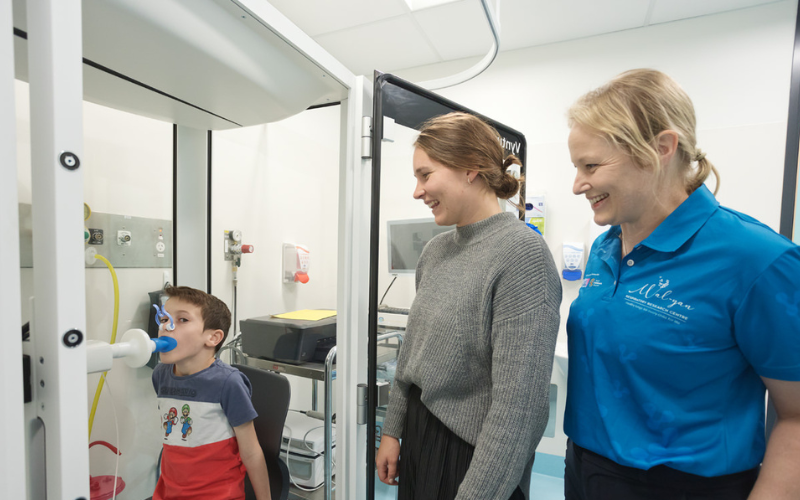Search
Showing results for "lung disease preterm"
Research
Effect of posture on lung ventilation distribution and associations with structure in children with cystic fibrosisBackground: We assessed the effect of posture on ventilation distribution and the impact on associations with structural lung disease.
Research
Lung function trajectories throughout childhood in survivors of very preterm birth: a longitudinal cohort studyLung function trajectories are impaired in survivors of very preterm birth
Research
The ventilatory response to hypoxia is blunted in some preterm infants during the second year of lifePreterm birth and subsequent neonatal ventilatory treatment disrupts development of the hypoxic ventilatory response (HVR). An attenuated HVR has been identified in preterm neonates, however it is unknown whether the attenuation persists into the second year of life.
Research
Collecting exhaled breath condensate from non-ventilated preterm-born infants: a modified methodExhaled breath condensate (EBC) collection is a non-invasive, safe method for measurement of biomarkers in patients with lung disease. Other methods of obtaining samples from the lungs, such as bronchoalveolar lavage, are invasive and require anaesthesia/sedation in neonates and infants. EBC is particularly appealing for assessing biomarkers in preterm-born infants, a population at risk of ongoing lung disease.
Research
Lung function following very preterm birth in the era of 'new' bronchopulmonary dysplasiaThe pathophysiology of BPD has changed in recent years as advances in neonatal care have led to increased survival of smaller, more preterm, infants who...
Research
Increased prevalence of expiratory flow limitation during exercise in children with bronchopulmonary dysplasiaExpiratory flow limitation is more prevalent in children born preterm with bronchopulmonary dysplasia and is associated with airway obstruction

News & Events
Limiting long term lung damage in preterm babiesWith premature babies facing lung problems, researchers with the Children’s Lung Health group are working to identify ways to improve the long-term impact.
Research
Risk factors for poorer respiratory outcomes in adolescents and young adults born pretermThe respiratory outcomes for adult survivors of preterm birth in the postsurfactant era are wide-ranging with prognostic factors, especially those encountered after the neonatal period, poorly understood.

News & Events
Common asthma drug gives hope for better lung health for some preterm babiesA new study has found a common asthma drug is effective for some very premature babies who go on to suffer from lung complications.
Research
Predicting long term lung health outcomes in young adults born very preterm (WALHIP 19 year old follow-up)Graham Shannon Elizabeth Hall Simpson Smith BAppSci PhD CRFS FANZSRS FThorSoc FERS BMedSci (hons), PhD PhD, MSc, BSc Honorary Research Associate
